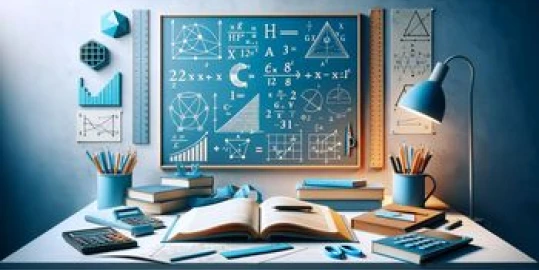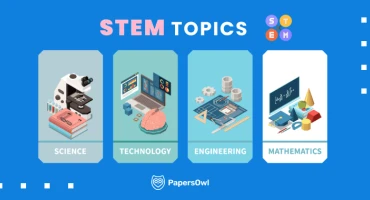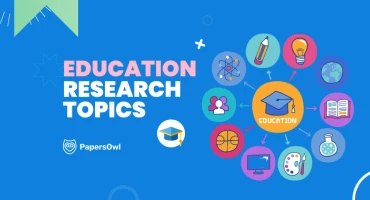Algebra can seem overwhelming at first, but with the right approach, anyone can master it.
To learn algebra effectively, start by building a strong foundation with the basic concepts, practice consistently, and use interactive tools to reinforce learning. Focus on understanding how numbers and variables work together to solve real-world problems. If you encounter specific problems you can’t solve, seeking assignment help can clarify difficult concepts and prevent frustration.
In this article, we’ll share 10 practical tips to help you learn algebra efficiently, boost your confidence, and set you on the path to success in math.
How to Learn Algebra
Algebra transcends the simple manipulation of numbers and letters; it embodies a critical tool for honing logical thinking and problem-solving skills.
This discipline equips learners with the ability to abstractly represent and methodically solve real-world issues, making complex ideas accessible and manageable. The journey to learn algebra is pivotal for academic pursuits and securing professional success across diverse fields.
It establishes the basis for further exploration in science, technology, engineering, and mathematics (STEM), fostering the analytical prowess required to navigate the complexities of modern careers.
If you’re finding algebra challenging, seeking maths help can provide you with the guidance and resources needed to build your skills effectively.
Tip #1: Building a Strong Foundation
Securing a robust understanding of fundamental mathematical principles is crucial before delving into algebra.
A thorough grasp of arithmetic operations, numerical properties, and geometric basics lays a sturdy platform for further exploration. This foundational layer makes the transition to more sophisticated topics smoother and boosts confidence when tackling challenges.
Embracing the basics ensures a more enriching educational experience and sets the stage for a deeper appreciation of mathematics.
Fortunately, for those who might need extra assistance, resources like Khan Academy and MathPlanet are readily available to help reinforce these essential concepts.
Tip #2: Adopt Active Learning Strategies
To truly learn algebra, stepping beyond traditional passive learning tactics is essential. Active engagement with the material through solving puzzles, playing educational games, or utilizing software can revolutionize the learning experience.
These interactive strategies encourage practical involvement, allowing students to apply concepts in various contexts. This hands-on approach solidifies understanding and makes learning enjoyable and fulfilling, turning potential apprehension into genuine interest.
For example, using manipulatives such as algebra tiles or visual models can help you physically interact with algebraic concepts, reinforcing your understanding.
Additionally, interactive apps like GeoGebra or Desmos allow you to graph equations and manipulate variables in real-time, providing instant feedback and helping solidify concepts.
These methods make abstract ideas more tangible, making it easier to grasp complex topics like solving systems of equations or understanding functions.
Applying active learning methods can also help you when learning advanced topics, such as how to find the nth term, making algebra more relatable and easier to understand.
Tip #3: The Language of Algebra
Understanding operations is akin to mastering the syntax of mathematics language. The ability to adeptly navigate addition, subtraction, multiplication, and division forms the cornerstone of equation-solving and problem-analysis.
Achieving proficiency in these operations is not merely about executing calculations; it involves comprehending the intricate relationships among numbers and symbols. This insight allows learners to adeptly translate complex real-world issues into solvable equations, underscoring the importance of this discipline in academic and everyday challenges.
Mastering algebra also lays the groundwork for tackling challenging physics topics for research, where a strong foundation in algebra is crucial for solving advanced problems.
Tip #4: Unlocking Linear Equations
Linear equations create the backbone of algebra, serving as a gateway to understanding more complex mathematical concepts.
To effectively learn algebra, it’s essential to grasp how to approach and solve these equations, which represent straight lines when graphed. This understanding not only aids in solving algebraic concerns but also interprets real-world situations mathematically.
Mastery of linear equations equips students with the tools to explore relationships between variables, an essential skill in both academic and practical contexts.
Tip #5: A Picture is Worth a Thousand Numbers
Graphing is a vital skill in algebra that brings equations to life, offering a visual representation of mathematical concepts.
Starting with linear equations and inequalities, graphing helps students see the relationship between variables, enhancing their comprehension of algebraic principles.
For those who find visual representation challenging, seeking geometry assignments can provide additional practice and support, reinforcing the connection between algebraic formulas and their graphical counterparts.
Tip #6: The Power of Polynomials
Learn algebra, which introduces the study of polynomials and the critical process of factorization, culminating in mastery of quadratic equations. These equations, which form parabolas when graphed, are pivotal in algebra and beyond.
Understanding how to factorize expressions and solve quadratic equations lays the groundwork for exploring more advanced topics, demonstrating algebra’s expansive reach and necessity in solving practical problems.
Tip #7: Algebra in the Real World
Algebra extends far beyond the classroom, applicable in solving many real-life problems. It is a critical tool for analysis and decision-making, from computing interest rates to planning trajectories in physics.
Illustrating its practical applications can significantly enhance students’ interest and understanding, making abstract concepts more tangible and relevant to everyday scenarios.
Tip #8: Create a Study Schedule
A well-structured study schedule helps you manage your time effectively, ensuring that you cover all necessary topics without feeling overwhelmed.
Allocating time for consistent practice and reviewing key concepts will strengthen your understanding of algebra and improve retention. By organizing your study time around clear goals, you’ll stay on track and reduce stress.
Additionally, if you’re preparing for exams, especially in subjects like physics, implementing physics exam success strategies within your schedule can help you better allocate time for both theory and practice, ensuring a balanced approach to studying.
Sample Study Schedule for Learning Algebra
Week 1: algebra fundamentals:
- Monday: Introduction to Algebra – Variables, expressions, and equations. Study: Understanding variables, coefficients, constants.
- Wednesday: Operations with Algebraic Expressions (addition, subtraction, multiplication, division). Study: Rules for operating on expressions.
- Friday: Practice basic operations with algebraic expressions, simplifying tasks.
Week 2: equations and inequalities:
- Monday: Solving Linear Equations. Study: Homogeneous equations, solving methods.
- Wednesday: Solving Equations with Multiple Variables. Study: Linear equations with two variables.
- Friday: Inequalities and solving them. Study: Solving linear inequalities, methods.
Week 3: functions and graphs
- Monday: Introduction to Functions. Study: Understanding functions, domain, and range.
- Wednesday: Graphing Linear Equations. Study: Plotting straight-line graphs, slope, and intercepts.
- Friday: Function Analysis. Study: How to analyze and graph different types of functions.
Week 4: systems of equations and advanced topics:
- Monday: Solving Systems of Linear Equations. Study: Substitution and elimination methods.
- Wednesday: Quadratic Equations. Study: Solving quadratic equations using factoring and the quadratic formula.
- Friday: Review and Practice. Study: Solve mixed problems to strengthen all concepts.
Ongoing Practice (Every Week):
- Daily Practice: Spend 20-30 minutes solving algebra problems.
- Weekly Review: Dedicate 1-2 hours each weekend to review and practice previously studied material.
Tip #9: A Helping Hand
Learning algebra is a journey that might sometimes require guidance and support. Encouraging students to seek help from teachers, tutors, or online resources when facing challenges is crucial.
Tip #10: Practice Makes Perfect
The importance of regular practice and review in algebra cannot be overstated. These activities reinforce learning, aid in identifying areas requiring improvement, and ensure a deep understanding of algebraic principles.
The consistent practice transforms it from a subject of difficulty to one of confidence and skill, highlighting the essential role of dedication in the mathematical journey.
Tips for Adult Learners
For adult learners, approaching algebra can be uniquely challenging, but also incredibly rewarding.
Whether you’re preparing for the GED or simply seeking personal growth, the key is to focus on practical applications.
Start by breaking down concepts into manageable chunks, and don’t be afraid to revisit foundational topics as needed. Use online resources that allow for flexible, self-paced learning.
Additionally, real-life applications — like budgeting, calculating interest rates, or solving simple home repair problems — can make algebra feel more relevant and less abstract.
Practicing with concrete examples helps reinforce the concepts and allows you to see the practical value of the subject in everyday life.
Common Mistakes and How to Avoid Them
| Mistake | Explanation | How to Avoid It |
|---|---|---|
| Confusing Variables with Constants | Many learners confuse variables (like x, y) with constants (like 5, 10). | Always identify and label each part of an equation clearly. Remember, variables change, constants do not. |
| Skipping Steps in Simplification | Skipping intermediate steps can lead to errors in calculations. | Always follow each step carefully, even if it seems simple. Double-check your work after each step. |
| Not Checking for Negative Signs | Forgetting negative signs in equations can lead to incorrect solutions. | Pay close attention to the placement of negative signs, and when in doubt, rewrite the expression clearly. |
| Misunderstanding Exponents | Some learners struggle with rules for exponents, especially negative exponents. | Review the rules for exponents, including how to deal with negative exponents and fractions. |
| Overlooking Word Problems | Algebraic word problems can be tricky, and missing important details is common. | Break down word problems into smaller steps, identify key information, and translate it into algebraic expressions. |
Resources for Additional Practice
To truly master algebra, consistent practice is key. Here are some excellent online resources that offer interactive exercises, tests, and worksheets to help reinforce your skills:
- MathGames: Engage in fun, interactive games that cover various algebra topics, such as solving equations, simplifying expressions, and graphing functions. Perfect for middle and high school students to sharpen their skills.
- Algebra Practice Test>: A free practice test to assess your knowledge of basic algebra. This test covers a wide range of topics, from equations to inequalities, and gives instant feedback.
- Free Algebra Worksheets: Download free algebra worksheets that allow you to practice key concepts independently. Ideal for self-study or exam preparation, with an option to print or complete digitally.
- IXL – Algebra 1: IXL provides a comprehensive set of practice problems for Algebra 1, covering over 350 skills. The platform offers personalized recommendations and immediate feedback to help students improve their understanding.
- Algebra Touch: A mobile app that allows you to manipulate algebraic equations through hands-on activities. Ideal for both middle and high school students to practice algebra on the go.
Bottom Line
Mastering algebra requires a structured approach, starting with solid fundamentals and progressing through active engagement with the material. Dedication, consistent practice, and seeking help when necessary will help overcome challenges along the way.
As you progress, remember that each concept mastered not only improves your mathematical abilities but also strengthens critical thinking and problem-solving skills. These skills are essential, extending far beyond the classroom.
By adopting a methodical approach to how to learn algebra, you’ll not only grasp the subject but also gain a tool for viewing and understanding the world.
With patience and determination, algebra will become a powerful tool, transforming complex problems into solvable challenges.






